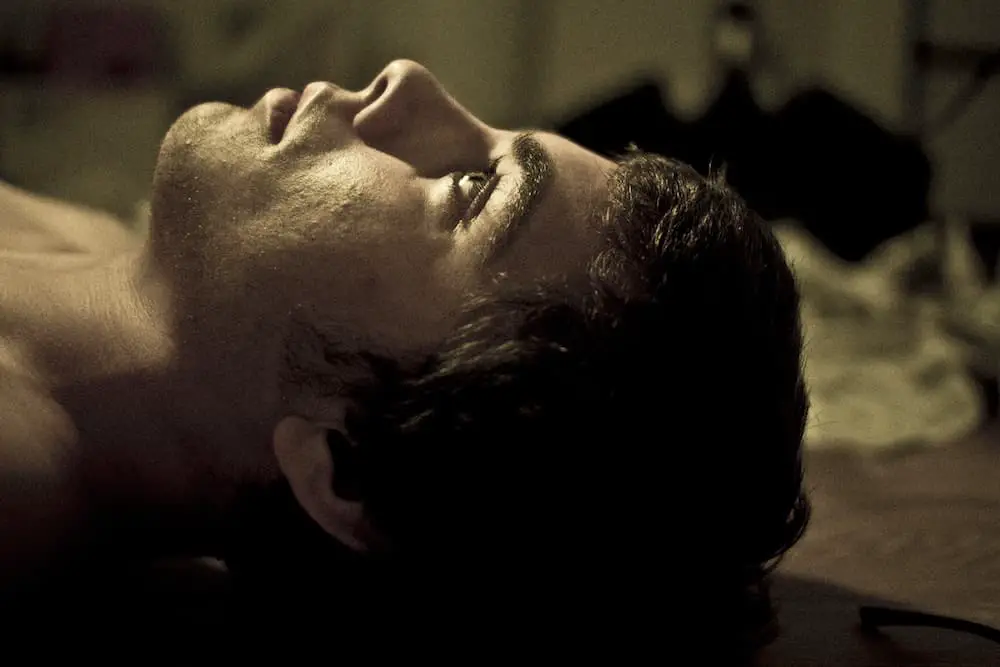Has it just been a few particularly restless nights the last couple of weeks or is it a sleep order you are experiencing?
Sometimes it can be hard to differentiate between a bout of stress or anxiety-caused sleeplessness and the beginning of a more serious sleep problem.
Before you talk to your doctor or a sleep specialist, here are 6 signs you can use to self-diagnose.
1. Taking too long to fall asleep

Most of us like to think that we take painfully long to fall asleep. But that’s often because you are doing nothing while also anticipating sleep so time seems to go slowly. The average period before most people fall asleep is 10-20 minutes.
But if you find that night after night it takes more than 30 minutes to sleep, it could be a sleep disorder. In particular, you might be suffering from insomnia.
It can either occur on its own (primary insomnia) or as a result of conditions like depression, medication or illness (secondary insomnia).
To diagnose insomnia, keep a sleep diary. If it happens irregularly (comes and goes with periods of restful sleep), it’s called acute insomnia. If it happens for at least 3 nights a week for at least a month, that’s chronic insomnia.
Acute insomnia can often be cured through better sleep habits and lifestyle changes. Chronic insomnia requires professional intervention.
2. Waking up frequently at night
Waking up at night is normal. Even if you wake up 5 times, it’s still okay as long as you can quickly go back to sleep.
But if you find yourself at 2am, wide awake, no sign of sleep, for several nights, it's time to get concerned. Possible sleep orders include sleep apnea, insomnia, jet lag disorder or shift work disorder.
Try to find out the underlying cause of your sleep restlessness. If the wakefulness continues, see a sleep specialist or talk to your doctor.
3. Loud snoring or irregular breathing while asleep
These two are classic symptoms of a serious sleep disorder called sleep apnea. This is a disorder where you stop breathing momentarily while asleep. These interruptions can occur hundreds of times.
Obstructive sleep apnea occurs when soft tissue from the back of your throat collapses.
Central sleep apnea occurs when the brain fails to send the right signals to breathing muscles.
Sleep apnea is a very serious condition. If you suspect you have it, seek medical help immediately. Signs to look out for include loud snoring, gasping, irregular breathing and restless sleep (taking too long to sleep or waking up frequently).
4. Burning, itching or twitchy sensation in your legs
These symptoms are often a sign of restless leg syndrome. It occurs both when you are awake and asleep.
Itchy and crawly sensations in your legs create an irresistible urge to move your legs to get some relief. During the day, you’ll feel like standing or walking. At night, when the symptoms usually get worse, you’ll experience an uncontrollable urge to keep moving your legs, thus interfering with your sleep.
Restless leg syndrome can result in insomnia, frequent wakefulness and fatigue during the day.
5. Falling asleep at unusual times such as when driving or talking

Have you heard of something called a sleep attack?
It's real and serious. You are working, talking or worse, driving when suddenly a feeling of drowsiness or weakness washes over you. Some people experience full muscle loss and can suddenly collapse.
This is a sleep disorder called narcolepsy. Researchers still don’t know for sure what causes it but certain genes affecting the release of sleep and wake hormones could be to blame.
While there is no cure, there is medication that can help manage the condition.
6. You feel fatigued during the day even after a full night’s sleep
This is one of the most common signs of a sleep disorder. It can be caused by various disorders including sleep apnea, narcolepsy, insomnia and restless leg syndrome.
Sometimes you can even sleep through the night but still feel tired and groggy during the day. Talk to your doctor for a full diagnosis and treatment advice.
When Is It Not a Sleep Disorder?

Taking too long to fall asleep, waking up at night, tiredness during the day – these symptoms could also be caused by other factors other than sleep disorders.
One common non-disorder cause is stress. It can prevent you from falling asleep quickly and leave you tired during the day.
An uncomfortable sleeping environment could also be to blame. Make sure your bedroom is cool (between 60 and 67 Fahrenheit), you have a supportive and comfortable mattress like the Sparrow Signature Hybrid and the house is adequately quiet.
Also check whether your medication could be causing sleep problems.
Affiliate Disclosure
Affiliate Disclosure: I may earn a small commission (at no cost to you) if you purchase a mattress after clicking a referral link or using a coupon code on this site. That said, all content and opinions on this site are my own and are NOT affected by these payments.
This site participates in the Amazon Services LLC Associates Program, an affiliate advertising program designed to provide a means for sites to earn advertising fees by advertising and linking to Amazon.com.
*Amazon and the Amazon logo are trademarks of Amazon.com, Inc, or its affiliates.

